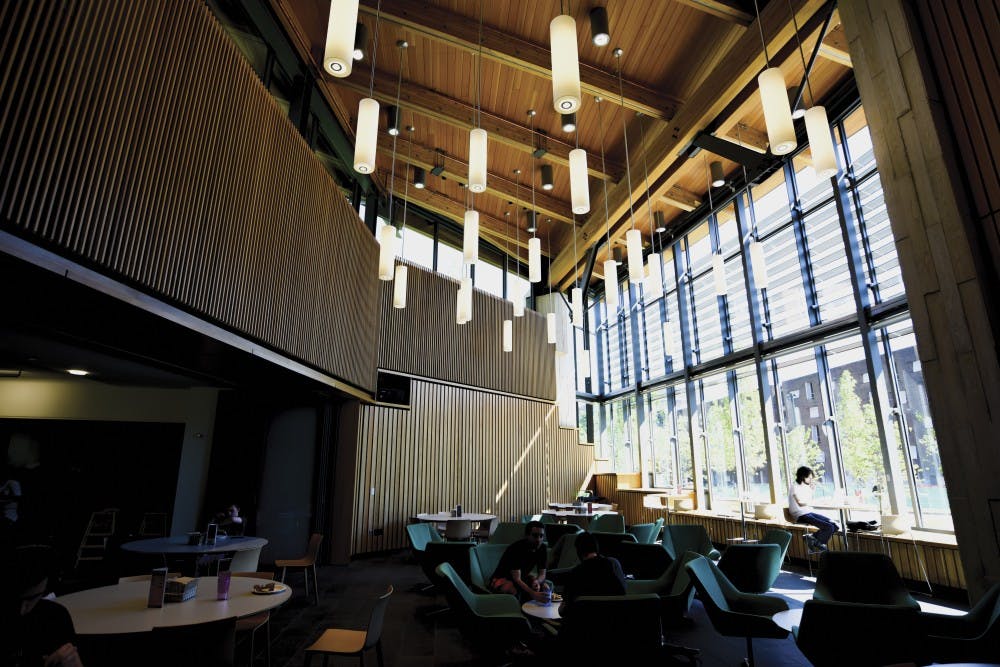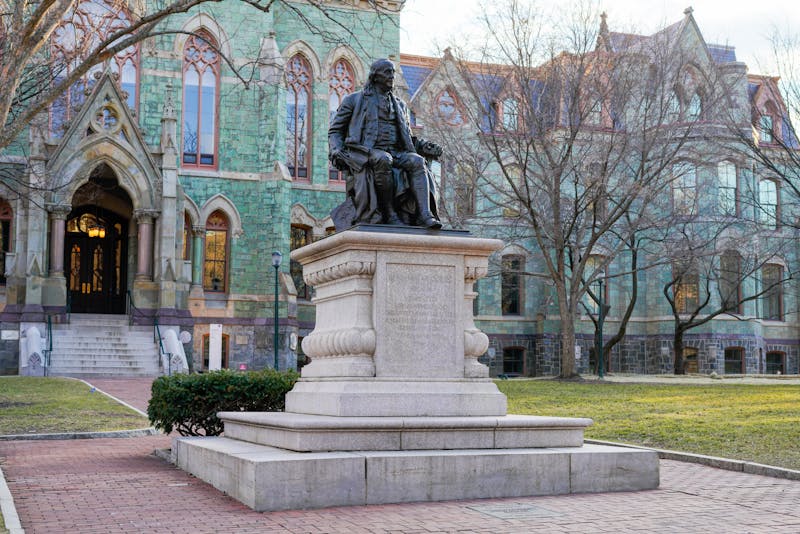
The announcement that sophomores will be required to live on campus in fall 2021 is part of a broader University effort to focus on building community in college houses, mirroring structures of other peer institutions, officials say.
New College House West, the $163 million building that is likely to begin construction in January 2019, will be designed with community building in mind. The dorm will open to students in the fall of 2021, which will also be the first year that sophomores are required to live on campus. It is with the additional space in NCHW that Penn will have the ability to house all first- and second-year students.
With a blank canvas, NCHW will be a prototype, designed specifically with the intention of community engagement. Penn will work toward its goal by reworking housing structures, reforming residential programs, and redesigning dining experiences.
Housing structures
In addition to requiring sophomores to live on campus, Penn is making changes to housing to facilitate community involvement.
In NCHW, all apartments will be suite-style, housing three to six people, with no single rooms at all. Suites will also not have their own complete kitchens, so students will be more encouraged to eat together.
"The college house system, if you look at Harvard, Yale, Princeton, and their house system, there’s dining in their buildings," Executive Director for Business Services Doug Berger said, noting that NCHW will, in fact, have a dining hall in the building. He added, however, that Penn does not aspire to be Harvard or Yale.
"[Penn President Amy Gutmann] made this point when we built New College House, I guess we'll call it East, is it's a purpose-built college house and it was the first purpose-built college house at Penn.”
Berger said "purpose-built college houses" refers to dorms that were specifically constructed with built-in spaces to support the residents’ academic and social experiences. Such spaces include music practice rooms, study spaces, seminar spaces, and dining halls.
While other dorms such as Hill College House and King’s Court English House have had those spaces retrofitted subsequently, NCH was the first Penn dorm designed with academic and social spaces from day one.

New College House, which opened in August 2016, was "the first purpose-built college house at Penn," Executive Director for Business Services Doug Berger said. (File Photo)
Residential communities
Another way that Penn is trying to create communities is through changes in Residential Programs. Residential Programs will soon be called "Program Communities," Director of Four-Year Houses and Residential Programs Ryan Keytack wrote in an email to The Daily Pennsylvanian.
Program Communities will consist of "Theme Communities" and "Course Communities" for incoming freshmen, while upperclassmen will be offered "Theme Communities" and "Student-Designed Communities," Keytack said.
He clarified that for Student-Designed Communities, a group of students interested in a topic can design their own program and live together to share the experience.
Keytack added that he is still working with a committee to prepare all the information within the next two weeks and details may still change until then. He said plans to institute these changes will be implemented through a three-step process: change the program names so students understand what they're signing up for, assess all existing programs, and then update or change content as needed.
Dining halls

The dining hall in New College House (File Photo)
NCHW will have a new dining hall of its own, which Berger and Barbara Lea-Kruger, director of communications and external relations, said that Gutmann specifically requested.
The new dining hall in NCHW will have a small kitchen, Berger said, and will prepare about 150 to 200 meals a night. Berger added this small dining experience is intended to enhance the intimate and engaging atmosphere Penn hopes the new building can create.
Penn Housing and Dining was not informed of any changes to meal plan requirements for sophomores, Lea-Kruger said. As of now, while on-campus housing will be mandatory for sophomores and freshmen in 2021, sophomores will not be required to join a meal plan.
Freshmen are currently required to select one of multiple dining options Penn offers.
Berger said Penn especially hopes the dining hall in NCHW will become a space in dorms where students and faculty can gather and interact with one another.
“When we talk about dining, that’s part of the communal, the academic piece of a college house and that opportunity to bring the residents and students together — not just to eat to fill themselves, but to have an opportunity to come together, to interact, to share what’s going on in the world, to meet with faculty,” Berger said.

Class of 1920 Commons is currently one of two dining halls located west of 38th Street, along with Hillel. (File Photo)
Yet some students say the true community of a dorm may not stem from its dining hall.
“I think the dorm itself creates community, not the dining hall,” said College sophomore Margaret Tebbe, who lived in the Quad and now is a resident of Rodin College House. “I don’t think people spend enough time in dining halls. You don’t go sit down next to someone you don’t know already."
Engineering freshman Kaiying Guo, who lives in Hill, said dining halls should ideally be places to create community.
“It’s important to have a dining hall where people can get together with friends and stuff,” Guo said. “I think it does foster community in the sense that there’s probably some groups of friendships with people you already know, but not necessarily for you to go out of your way to meet new people.”
Wharton senior Carlos Gonzalez, who lived in the Quad his freshman year, also said that dining halls may become a place where students meet with their group of friends. He added that the new dining hall will take away some of the student population that frequents 1920 Commons.
The Daily Pennsylvanian is an independent, student-run newspaper. Please consider making a donation to support the coverage that shapes the University. Your generosity ensures a future of strong journalism at Penn.
Donate






